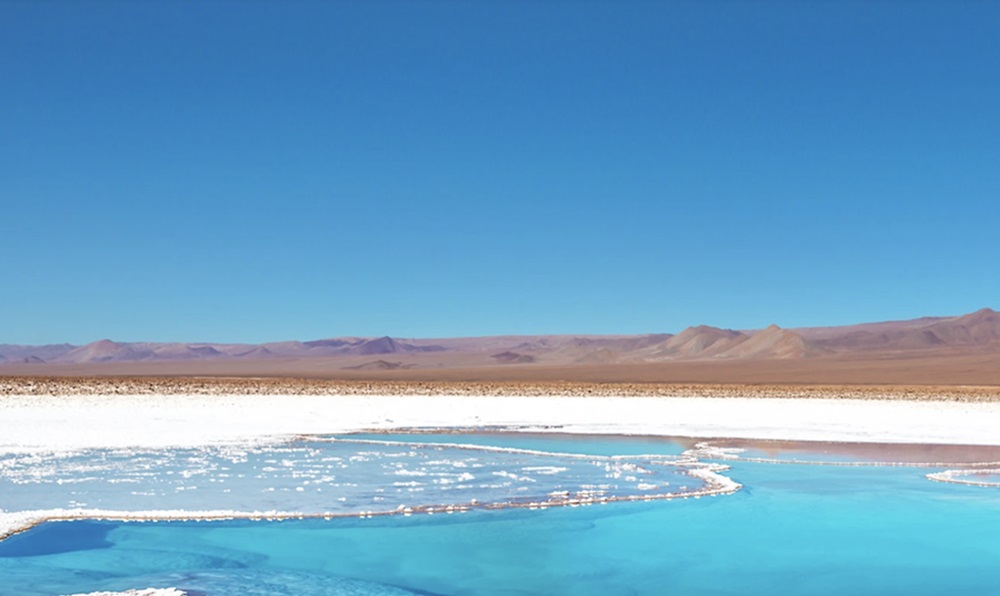From pv magazine USA
Lithium producer Lithos Group LTD’s subsidiary Aqueous Resources LLC applied for a $30 million grant through the Department of Energy’s FedConnect program. The $150 million grant, to be awarded by the DOE’s Office of Fossil Energy and Carbon Management, is meant to help advance the development of financially and environmentally sustainable processes associated with the production and refinement of lithium.
Each awardee receives up to $30 million, and Aqueous’ financing will go toward renovating its 55,000 sq ft Bessemer, Ala., complex. “We are excited to extend and expand our relationship with the U.S. Department of Energy and use this additional grant funding to accelerate pilot scale production of Lithium hydroxide from the Bessemer, Ala., complex,” said Scott Taylor, CEO of Lithos.
The funds will help increase the facility’s capacity to process lithium hydroxide sustainably, which is essential to ensuring organizations can meet local demands for lithium without causing further harm to the environment.
Lithium is usually mined from hard rock or salt brines. Both can have a negative environmental impact; however, Aqueous technology works to minimize the amount of groundwater evaporation necessary for lithium recovery from salt brines. The process usually requires pumping saltwater from underground reservoirs to the surface, then storing it in evaporation ponds, where it takes 12 to 18 months to evaporate and leave behind a brine with high lithium concentrations.
Carbon Accounting Platform Greenly states that it takes almost 2.2 million liters of water to produce one ton of lithium. This depletes groundwater levels in nearby areas, thus potentially harming agricultural land.
The patent-pending technology, AcQUA, employs an electric-pressure membrane process to remove and refine lithium chloride salt brines. It allows for directly removing raw brine from saltwater without evaporation ponds. Aqueous states that the process is cost-effective and efficient because the technology can pre-treat, select, purify, and concentrate lithium-enriched brines before extracting lithium chloride.
The company reports that the technology also allows for repurposing over 98% of the input brine water.
Lithos states it has a fully operational direct lithium extraction processing plant commissioned in Denver, Colo. The organization is focusing on applying the same technology to reduce the environmental impact of processing brines across other locations in the United States, as well as in Argentina and Chile.
The company seeks to become the global standard for economically and environmentally sustainable lithium production, used in the manufacturing of EV batteries. Its Bessemer, Ala., facility sits near Mercedes-Benz U.S. International, Inc., Honda Manufacturing of Alabama, LLC, and Hyundai Motor Manufacturing Alabama, LLC.
“The existing permits allow us to seamlessly extend our pre-treatment processing flowsheets to DLE and through polishing and purifying battery grade lithium. We are grateful for the support we received from the Senate, Congress, the University of Alabama, and the City of Bessemer,” said Taylor.
This content is protected by copyright and may not be reused. If you want to cooperate with us and would like to reuse some of our content, please contact: editors@pv-magazine.com.








1 comment
By submitting this form you agree to pv magazine using your data for the purposes of publishing your comment.
Your personal data will only be disclosed or otherwise transmitted to third parties for the purposes of spam filtering or if this is necessary for technical maintenance of the website. Any other transfer to third parties will not take place unless this is justified on the basis of applicable data protection regulations or if pv magazine is legally obliged to do so.
You may revoke this consent at any time with effect for the future, in which case your personal data will be deleted immediately. Otherwise, your data will be deleted if pv magazine has processed your request or the purpose of data storage is fulfilled.
Further information on data privacy can be found in our Data Protection Policy.